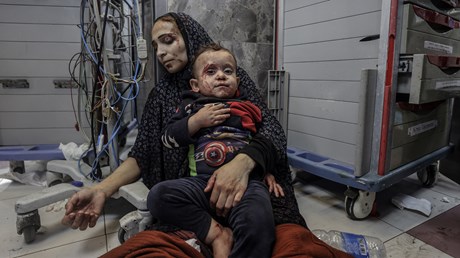A historian of Gaza’s only Christian hospital, where hundreds died in an explosion this week, shares the story of the longstanding refuge.

The Arabic word ahli can be translated into English in several ways: family, membership, and people. This family is not limited to nuclear membership. It’s capacious, expanding to include a wide range of people who belong together.
This word, ahli, has appeared in news headlines across the world this week, following the explosion that killed hundreds seeking refuge at al-Ahli Arab Hospital in Gaza City.
Narratives about who was to blame proliferated before the fires engulfing the hospital were even extinguished. Some held an Israeli air strike accountable. Others blamed a misfired rocket belonging to Palestine Islamic Jihad. Media discussions quickly extrapolated to geopolitical ramifications: Would the hospital strike bring about a ceasefire? Or would it be provocation for more death and destruction?
In this moment, Christians may feel increasingly entrenched on one side or the other, speculating, blaming, posting, and reacting to daily updates. As a historian who has published on al-Ahli Hospital, let me extend an invitation to pause. To think. To pray.
Praying about the destruction of this hospital in Gaza needs to start, first and foremost, with knowledge of the people who were affected. Who were the people at the hospital? Why did al-Ahli Arab Hospital experience this tragedy? And how can we turn to God when nothing makes sense?
To more fully comprehend who sought refuge within the hospital, we must start with its history.
The idea of establishing a Christian hospital in Gaza began in 1878, when the British Church Missionary Society (CMS) commissioned Alexander Schapira to relocate his family to Gaza City and determine the feasibility of a medical mission there. Schapira was the ideal choice for the CMS. He was raised ...
from Christianity Today Magazine
Umn ministry


.gif)

.gif)
.gif)
